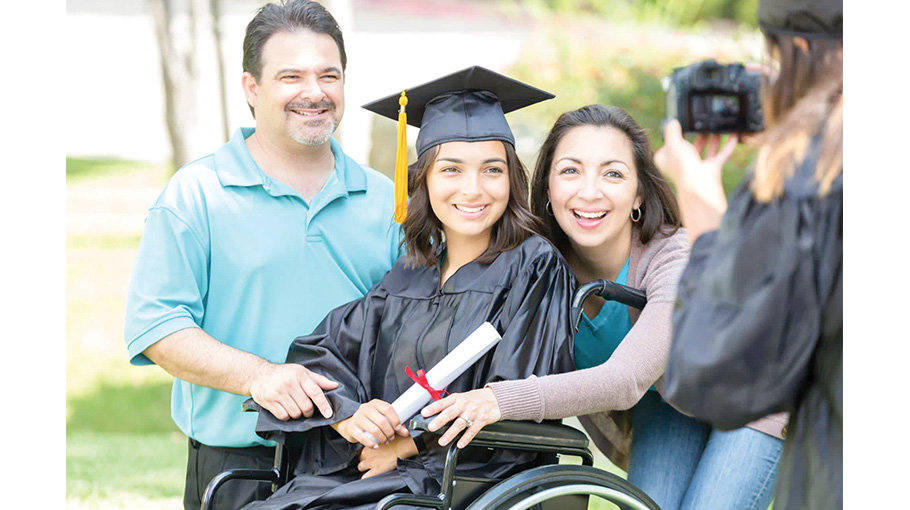Helping students with disabilities go abroad

Physical, intellectual or learning disabilities can be challenging for students’ confidence while planning a period of international mobility. That’s why mobility advisors have an important role to play in helping build these students’ confidence to study abroad, and in doing so contributing to a more inclusive university.
Many students are not confident about deciding to participate in international mobility because they are afraid of not being able to meet their learning needs in an unfamiliar context. They wonder about their prospects abroad: Will I be able to handle it? Is it a good idea? What if professors/institutions do not consider my difficulties?
Here is a few keys points that have helped international team when sending students with disabilities abroad.
1. Talk to partner institutions in advance
Be aware of the destinations and institutions that are appropriate and relevant according to students’ disabilities. Check with the partner institution if they are open to welcoming students with physical, intellectual, or learning difficulties, and ask about the facilities and programmes that might help them integrate into the partner institution. For example: check if the facilities are wheelchair accessible for students with physical difficulties or if they have accommodations like extra time on tests for students with learning difficulties, because those aspects are an important tool to create equal opportunities for students.
2. Set realistic goals
Each situation is different, and it will depend on each student to set their own mobility goal. However, if a student has limited mobility due to a physical disability, then proposing to go too far from home might not be a good option for the student or their parents or guardians. Both parties will feel more comfortable knowing that the student can easily come back home or be visited in case of need.
On the other hand, students with dyslexia might find it easier to go to a country where they can use their native language. In that case, distance won’t be a limit when setting goals. Each case is different, but some of the most important factors to consider when choosing a destination to study abroad include distance, language, culture and size of the city.
3. Give students options, but encourage autonomy
Communication is a key point when orienting students, as they need to be reassured about the destinations and the options they have before choosing where to go. However, the information provided by the international service needs to be accompanied by students’ own interest, needs and research of a destination while planning a mobility. Students will need to act autonomously while abroad and this autonomy should be promoted from the beginning of the mobility process.
4. Send other students to the same destination
Feelings of isolation and loneliness may appear while abroad, and risk of mental health issues is higher in people with disabilities. That is why company is important, and building relationships with peers on the same context and with similar social needs helps students with disabilities to connect with new learning processes, environments and institutions.
5. Find ways to connect with local institutions
Local institutions are a way to integrate into a new culture. Feeling welcomed and appreciated in a culture increases confidence and makes mobility easier for students with disabilities. Associations who promote inclusion are a source of reassurance when traveling abroad, students can get some guidance and feel less stressed when planning their trip. Advising them to look for information about associations on their destination can increase the chances of starting the trip in a comfortable situation for students. Some examples of associations in Europe are: Autism Europe, International Dyslexia Association, British Dyslexia Association, and ADEPA. But the choice of the institutions will depend on the students’ destination.
6. Follow up
Don’t forget to double check that everything is going smoothly at the beginning and ask the receiving institution from time to time to get some news about the student.



